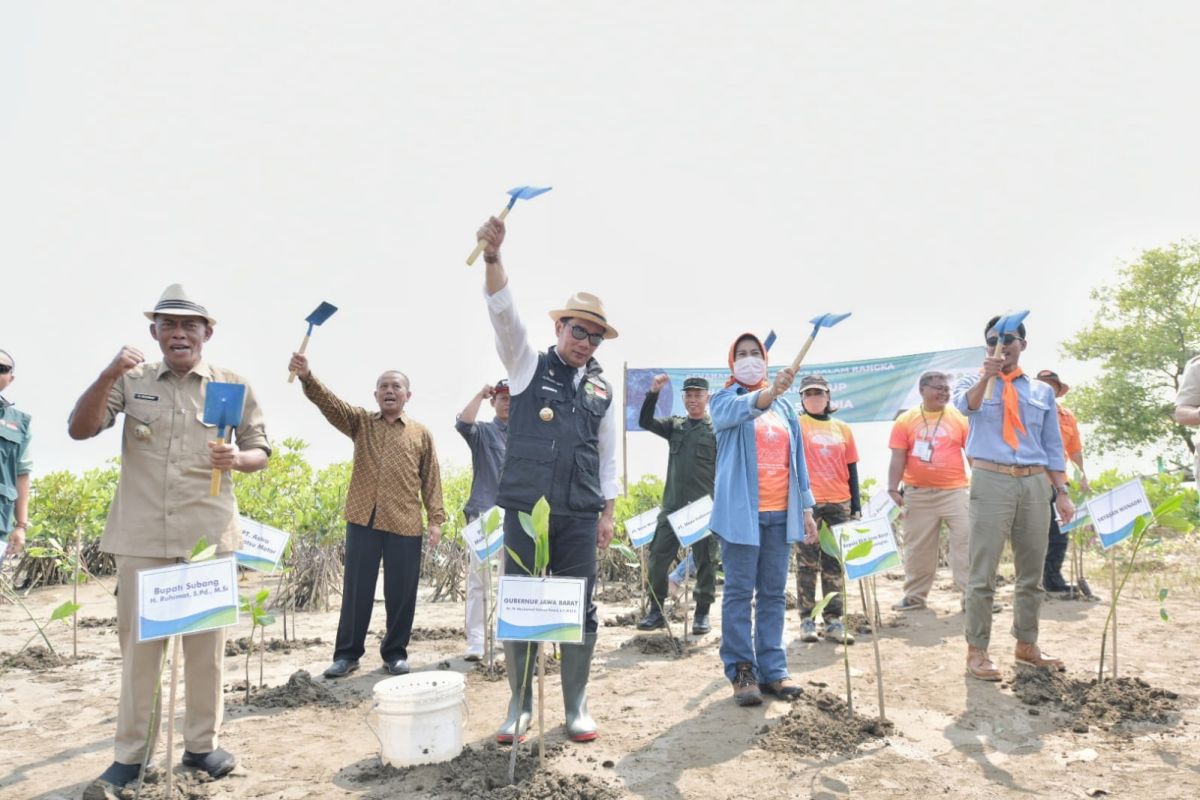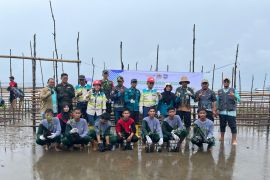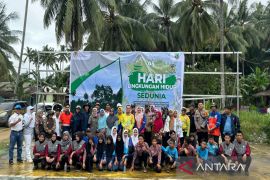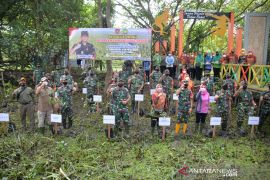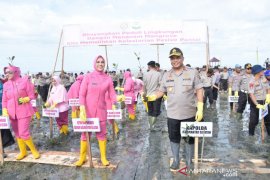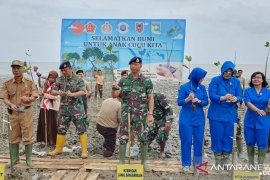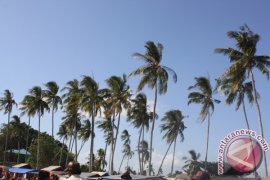Bandung, West Java (ANTARA) - Governor of West Java, M. Ridwan Kamil admitted that the impact of global warming has arrived in the province and had turned land to sea.
"Because of this, the mangrove planting movement in the north of West Java must be massive," he said in a press statement released on Friday.
He invited residents to participate in a mangrove seed planting movement launched by the provincial government on the northern coast of West Java.
During a mangrove seed planting event held to commemorate World Environment Day at Pondok Bali Beach, Subang, on Thursday, the Governor informed that hundreds of hectares of land on West Java's northern coast has been inundated by seawater.
Seawater has submerged 192 hectares of land around Pondok Bali Beach and around 400 hectares of land on Bekasi's coast due to a variety of factors, including development projects and global warming.
Therefore, the West Java provincial government is conducting a mangrove seed planting movement to protect the land along the coastal area from abrasion, he said.
"If the length of the beach is around 300–400 km, we will map out which areas are urgent to be planted with mangrove," he added.
In comparison to West Java's southern coastal area, which has steep land contours, West Java's northern coast has lower-lying land, allowing seawater to enter more easily, he explained.
“The southern (coast) has steep land, which will not trigger land loss. Hence, the planting of millions of mangroves is focused on the north," Kamil said.
Large-scale mangrove planting on the entire northern coast of West Java is expected to curb potential loss of land due to abrasion, the Governor added.
"Let us hope that it can reduce land loss within several years in the future," he remarked.
Related news: Fifteen homes collapse due to coastal abrasion in Amurang: official
Related news: BRGM plants mangroves to commemorate National Tree Planting Day


